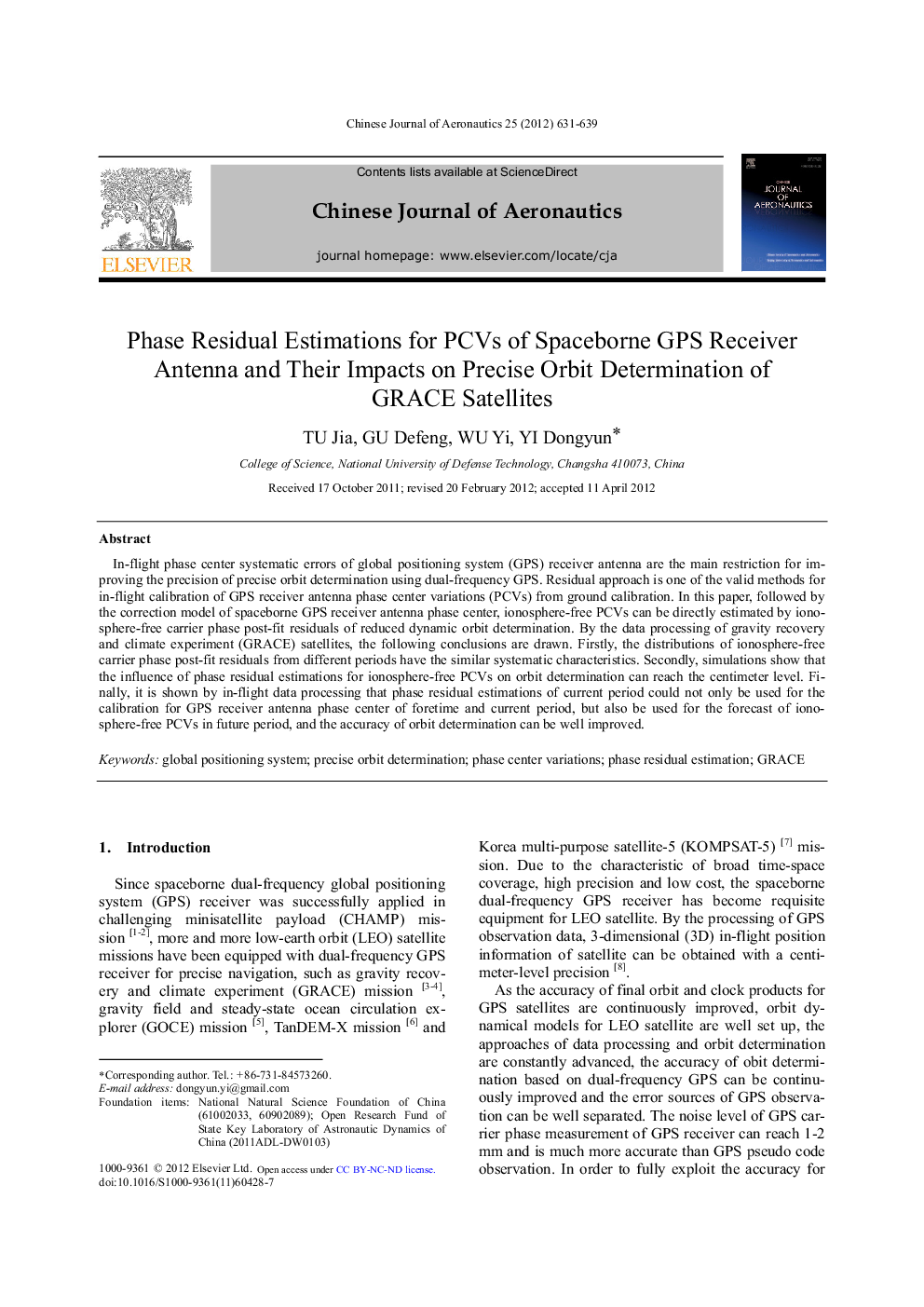| Article ID | Journal | Published Year | Pages | File Type |
|---|---|---|---|---|
| 755358 | Chinese Journal of Aeronautics | 2012 | 9 Pages |
In-flight phase center systematic errors of global positioning system (GPS) receiver antenna are the main restriction for improving the precision of precise orbit determination using dual-frequency GPS. Residual approach is one of the valid methods for in-flight calibration of GPS receiver antenna phase center variations (PCVs) from ground calibration. In this paper, followed by the correction model of spaceborne GPS receiver antenna phase center, ionosphere-free PCVs can be directly estimated by ionosphere-free carrier phase post-fit residuals of reduced dynamic orbit determination. By the data processing of gravity recovery and climate experiment (GRACE) satellites, the following conclusions are drawn. Firstly, the distributions of ionosphere-free carrier phase post-fit residuals from different periods have the similar systematic characteristics. Secondly, simulations show that the influence of phase residual estimations for ionosphere-free PCVs on orbit determination can reach the centimeter level. Finally, it is shown by in-flight data processing that phase residual estimations of current period could not only be used for the calibration for GPS receiver antenna phase center of foretime and current period, but also be used for the forecast of ionosphere-free PCVs in future period, and the accuracy of orbit determination can be well improved.
